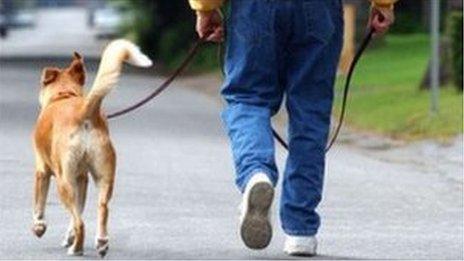Burnham and Highbridge campaign against dog fouling
- Published
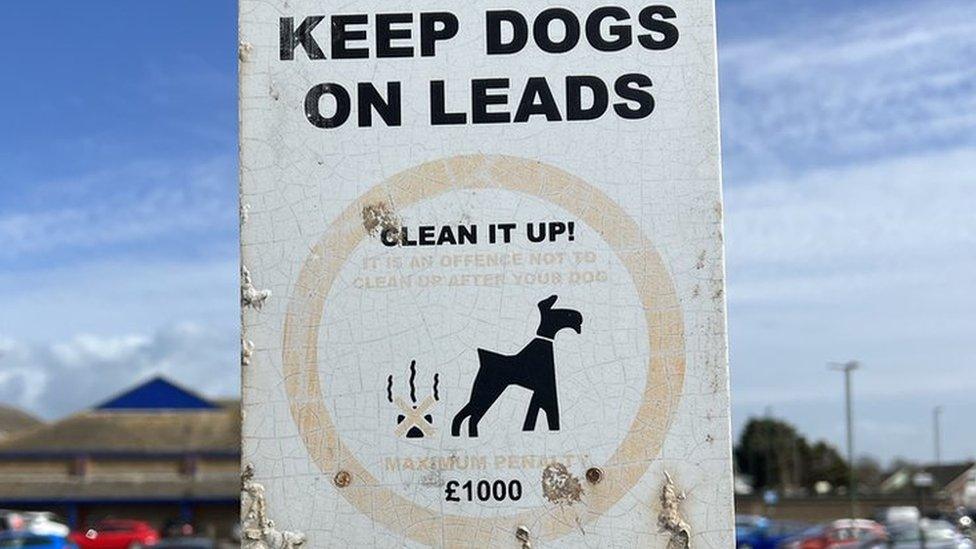
Campaigners say they want to see dog owners take responsibility by picking up after their dogs
A new campaign to encourage more people to pick up after their dogs is underway in a pair of seaside towns.
Burnham-on-Sea and Highbridge Town Council says dog fouling is a "widespread" problem that's becoming a "serious health risk".
The campaign is a week-long survey finishing at Easter, and is being run by volunteer-led patrols.
They are marking any dog faeces with chalk paint to highlight the worst-affected areas in the towns.
The council says it wants to highlight the fact that dog fouling is a human problem, and would like to see owners taking responsibility by picking up after their dogs.
Mayor of Burnham-on-Sea and Highbridge, Lesley Millard, says the problem poses a serious health risk, particularly for young children.
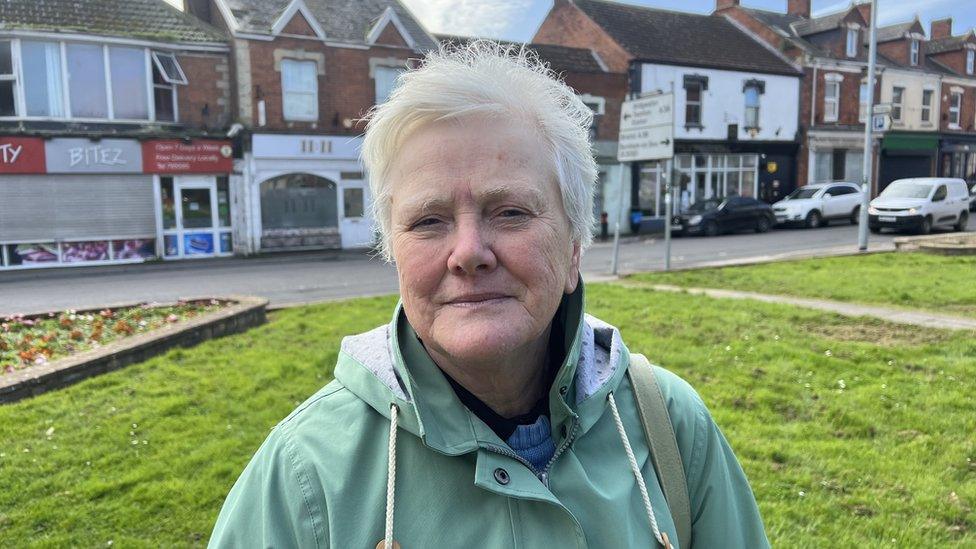
Mayor of the town, Lesley Millard, is one of the volunteer patrollers
"I live in Highbridge and it's very important to me that we're proud of our town and that we keep it clean and tidy," she said.
"Dog fouling is destroying that totally, for everybody. We have complaints at every annual town meeting about dog poo around the town and how disgusting it is.
"This is why we wanted to take up the campaign, to say okay - let's do something about this."
Groups of volunteers are patrolling dog fouling hotspots such as Market Street, Tyler Way, and Newtown Road.
Once it is determined where the worst affected areas are, posters will be put up to try and discourage owners leaving mess behind.
"I feel there's no badly-behaved dogs, just badly-behaved owners," Ms Millard added.
Simon Gradey works at the Burnham-on-Sea tourist information centre, and says the problem is putting off people from visiting the area.
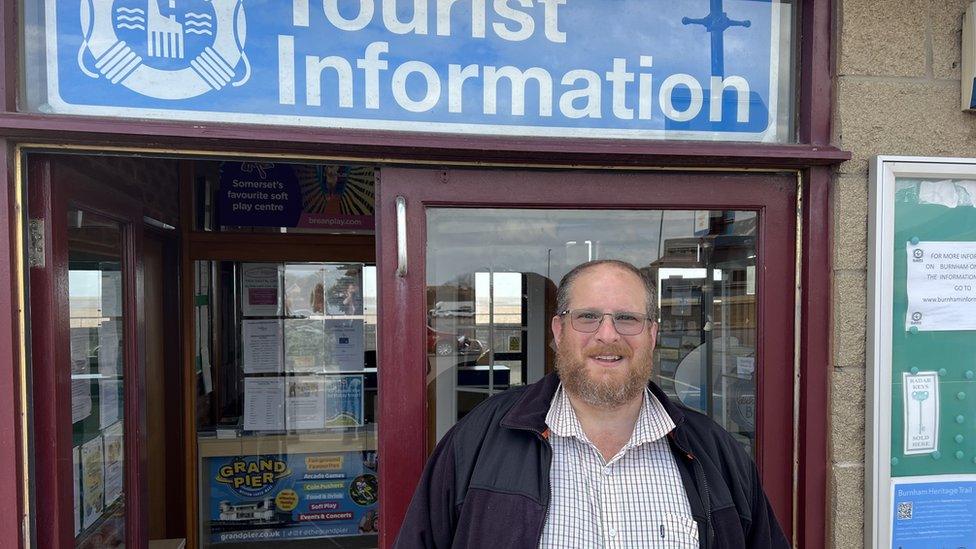
Simon Gradey says the problem has worsened over the last few years
"A lot of people visit in the summer and autumn and bring a lot of money into the area," he said.
"There are areas that are particularly bad, and it has it has got far worse over the last few years.
"For people that live here, it's actually becoming a bit of an embarrassment."

Follow BBC Somerset on Facebook, external and, X, external. Send your story ideas to us on email, external or via WhatsApp on 0800 313 4630, external.
Related topics
- Published22 November 2021
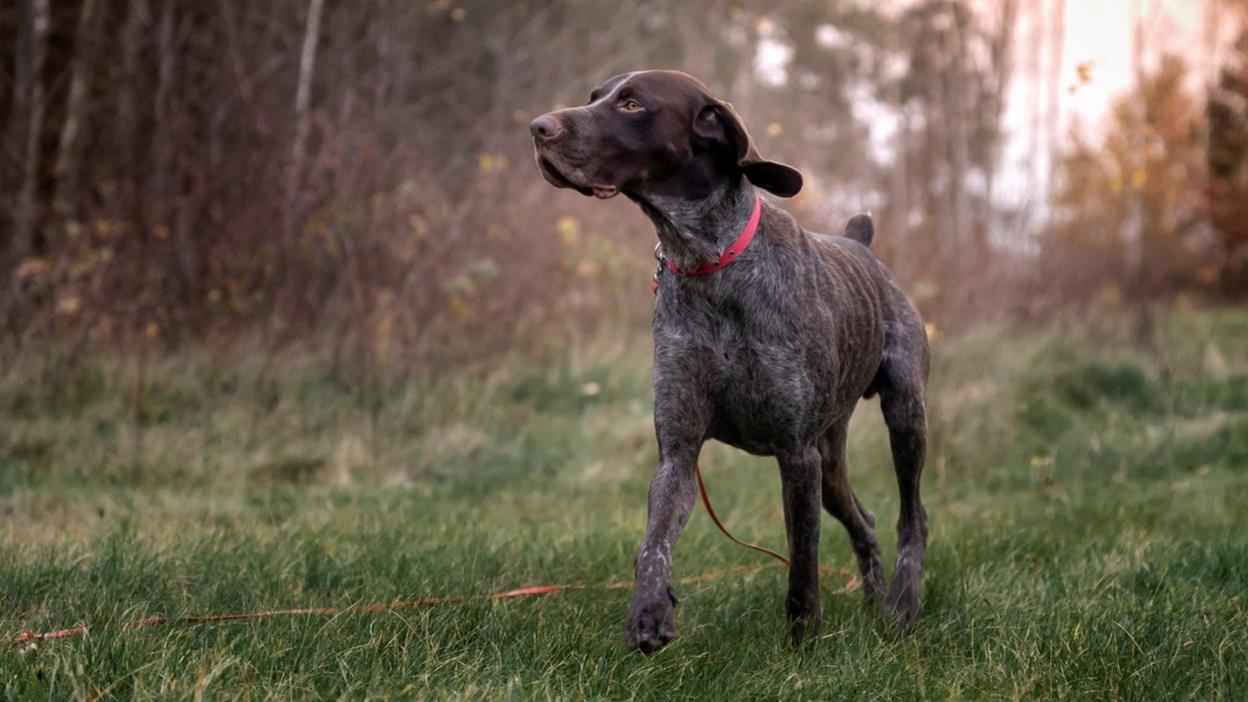
- Published9 March 2021
